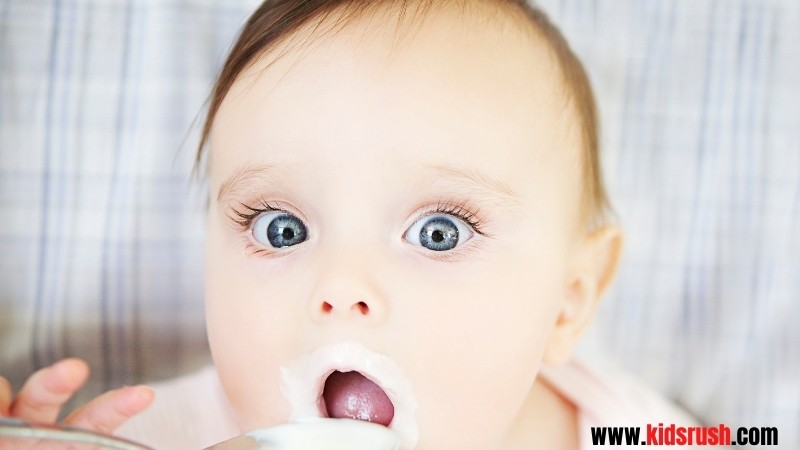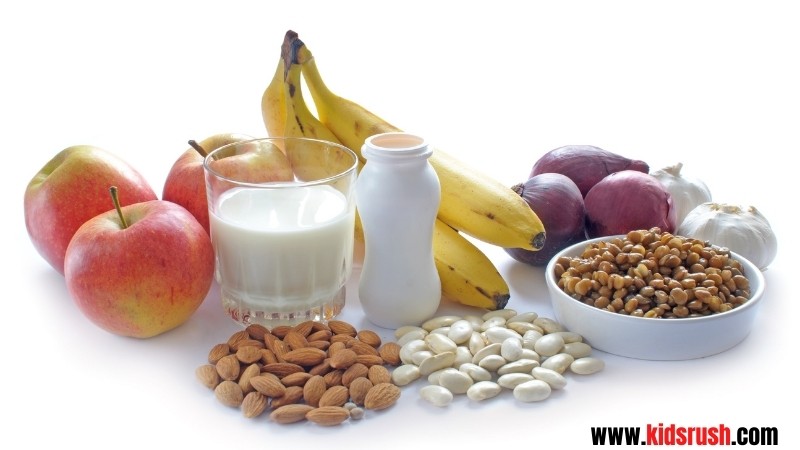Probiotics for babies
Bacteria-based supplements have various benefits for the gastrointestinal tract of adults, but do you know if it is healthy to give probiotics to babies and newborns? Here we give you the answer
Is it appropriate to provide probiotics for very young babies? What are the risks of modifying the infant’s intestinal flora? Before making any decisions related to pediatric health, it is essential to clear these unknowns.
Probiotics are live microorganisms that are added to certain components of the diet and remain active in the intestine. Thanks to their activity, they modify the microbiota of the digestive system of those who consume them.
According to the World Health Organization (WHO), ingested in a suitable dose, they provide various health benefits. Probiotic foods include fresh yogurts, kefir, sauerkraut, and many other Lacto fermented products.
On the intestinal flora

A balanced microbiota in the gut is essential for human health. The state of cooperation that is established between the person and the microorganisms that inhabit it determines the state of health in the short and long term.
According to various studies, the bacterial flora that inhabits the gastrointestinal tract provides various benefits such as the following:
- They help in the specialization of the lymphoid tissue associated with the mucosa of the intestine. This results in synergy with the immune system, which learns to recognize beneficial bacterial strains and prepare for future pathogens. In short, it is a stimulus for the defenses.
- Gut bacteria perceive and degrade certain polysaccharides of plant origin that we alone could not digest. According to scientific publications, this activity represents 10% of the daily calories of a human being.
- As the digestive system is open to the external, it is always at risk of being attacked by external agents. The normal bacterial flora colonizes surfaces in contact with the outside world, preventing pathogenic organisms from multiplying there.
These are some of the many benefits that bacteria in the gut bring to humans. This is a symbiotic relationship, as we would not exist without them, nor would they without us.
Probiotics for babies

Probiotic foods are those that contain bacteria that are beneficial for the general functioning of the gut microbiome. Some of these are those belonging to the genera Lactobacillus, Bifidobacterium, and the species Saccharomyces boulardii.
These microorganisms are already found in a normal way in a healthy microbiota, but promoting their presence can be a good idea if there are no previous pathologies in the person who consumes them. Now, does the situation change if we talk about newborns?
Studies in favor of the use of probiotics for babies
- 589 newborn infants were monitored during their first 90 days of age. Some were given the probiotic bacteria Lactobacillus reuteri, and others a placebo.
- Parents were asked to monitor daily episodes of regurgitation, duration of inconsolable crying, number of visits to the pediatrician, and hospitalizations, among other parameters indicative of the baby’s intestinal health.
- A notable difference in various parameters was observed between those treated with the probiotic and those untreated, which suggests that these microorganisms protected the neonates against intestinal disorders.
But this is not all, because other studies like this also show the benefit of the Lactobacillus reuteri bacteria in the proper functioning of the intestine. In this case, a reduction in symptoms associated with colic in babies was observed with the application of drops of the probiotic in breast milk.
General benefits of probiotics
As a general clinical consensus, probiotics are believed to help both adults and children on several fronts:
- Promote the growth of beneficial bacteria when the user is taking antibiotics.
- They reduce symptoms of intestinal diseases, such as irritable bowel syndrome.
- They prevent diarrhea caused by infectious agents.
Risks of probiotics for babies
Probiotics are usually a safe additive. Even so, certain scientific sources warn that, exceptionally, complications can be generated by its use.
People with a compromised immune system, heart valve disease, or premature babies, are groups of possible risks. This is so because the bacteria would tend, in these situations, to multiply exorbitantly, generating gastrointestinal inflammation, excessive activation of the immune system, and, in the worst case, bacteremia.
The extent of these pathologies in newborns is not fully known. Besides, the long-term effects of using these bacteria on child development are difficult to ascertain, as this would require a follow-up of several years in infants who consumed it.
Probiotics for Babies: What to Remember?

The use of probiotics for babies seems to have several benefits, but science needs to continue studying the interactions between these microorganisms and the intestinal health of the newborn. Possible risks and adverse effects should also be assessed.
That is why the best choice is always to consult the idea with the pediatrician before carrying it out, since he knows the clinical picture of the newborn better than anyone, and will know what is best for him. Not everyone should consume probiotics, as well as their availability in the place where the parents live.
